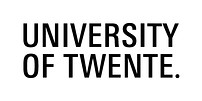Steering public policy based on data
Cities can make data-driven decisions using smart-city technology and open data. This creates opportunities for speeding up the policy process and improving the quality of decisions.
Main themes of this research
Data-driven working is not yet commonplace in government. There are various technical, political and administrative, and organisational reasons for this. In this line of research, we explore how we can use data to strengthen the collaboration between stakeholders in the smart city. We develop both technology and tools for improving collaboration between the stakeholders.
We are conducting research on data visualisation and digital twins to start a data-driven dialogue between stakeholders. In this track, ‘stakeholders’ refers primarily to professionals working for the government and business, but also to local residents. This theme is thus the link between the two line of researchs of ‘Smart Cities.’
Smart-city applications are often put on hold at the pilot stage. Poor cooperation between (parts of) municipalities, technology companies and residents is one of the main causes. We are conducting research on collaborative governance to improve this collaboration. We have developed a practical toolbox for this purpose. See our collaboration tools.
The use of data science in general, and artificial intelligence (AI) in particular, presents both opportunities and risks. We develop smart-city applications based on AI and data science that are FAT (fair, accountable and transparent). We are exploring how to convert sustainability data from open datasets, for example from sensors and from residents, into steering information for government professionals. Our focus here is on both the technology and the approach used to develop it (Ethics by Design).
High-tech City Centre
How can data be used efficiently to improve the city centre experience? The High-Tech City Centre project explored new ways of collecting data to measure visitor experience and satisfaction. This is an example of a project within our focus area: Data-driven steering of public policy.
How can we work together?
Smart Cities distinguishes itself by gearing projects to the needs and demands of its partners and society. We provide support throughout the process in all areas from funding to securing the application.
- Collaboration: Joint project development and funding
- Network: Discover our extensive network of partners
- A helping hand from the education sector: Opportunities to collaborate with Smart Cities includes working with or supervising students














